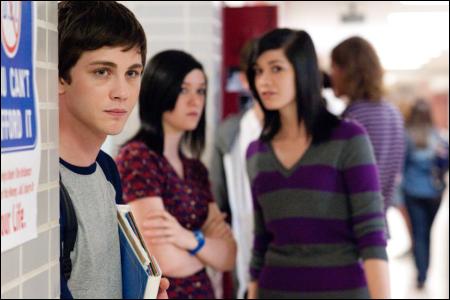Chbosky felt an enormous sense of accountability toward his multitudes of fans as he adapted the popular novel into a screenplay. “In the 13 years since Perks was first published, I’ve received hundreds of letters and emails,” he explains. “Some of them would break your heart. You realize that a lot of kids feel terribly alone. They think that that no one is listening, that no one cares. Some of them say they were thinking about ending it, but then they read the book and chose not to. When that happens, it changes you, and you realize what a responsibility you have.”
The book is written as a series of letters from Charlie to an unnamed correspondent. Charlie’s letters deal frankly with issues that continue to confront teens over a decade later. Some of those “hot button” topics, including drug and alcohol use and sex, have made the material controversial in some communities. “Every time the book gets banned, people say it’s a badge of honor,” says the author. “But for me, there’s always a sad moment. I wrote the book in part to end a silence. I want parents and kids to talk about what they are going through. Censorship and book banning just end the conversation.”
More important than any of the events of the book are the characters, the author says. For that reason, when writing the script, he streamlined the plot, and focused on the relationship between Charlie and the first friends he makes at his new school, most notably Sam and her stepbrother Patrick, who see in him a kindred spirit. “Some things had to go, but the central themes are unchanged,” says Chbosky.
“The family of friends and the relationship between Charlie and Sam and Patrick had to be there. I ultimately did cut things that are beautiful in the book, but didn’t quite fit into the movie. But if I had filmed every scene in the book, it would’ve been about four hours long.”
The story is still told through Charlie’s eyes, but Chbosky engineered a subtle shift in point of view that he knew was necessary to tell his story most effectively. “In the book, we come to love Charlie’s friends through his love for them,” he says. “But that doesn’t work in a movie. I had to find an objective way to show Charlie’s subjective love. I had to do things like make the character of Patrick much funnier, because it wasn’t good enough for Charlie to describe how funny Patrick was. He had to actually earn it.”
Next Page: An Unconventional Love Story
Views: 54



